Libellula
Libellula
Classification
- Phylum: Arthropoda
- Subphylum: Hexapoda
- Class: Insecta
- Order: Odonata
- Suborder: Anisoptera
- Family: Libellulidae
- Genus: Libellula
Pronunciation
How to pronounce Libellula: //lɪˈbɛl.jʊ.lə//
These audio files are automatically generated. While they are not always 100% accurate, they are a good starting point.
Images
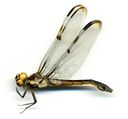
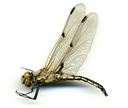
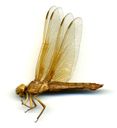

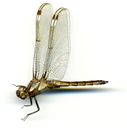
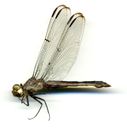
Summary
Libellula is a genus of dragonflies known for their vibrant wing patterns and widespread distribution in temperate regions, primarily North America. They are also known as chasers or skimmers and are important predators in their ecosystems.
Physical Characteristics
Libellula species exhibit showy wing patterns characterized by various colors and designs. They generally have a robust body and long wings.
Identification Tips
Look for large, colorful dragonflies with elongated bodies and distinct wing patterns. Males and females may exhibit sexual dimorphism in color.
Habitat
Primarily found in freshwater environments, including ponds, lakes, and marshes, often near vegetation.
Distribution
They are widely distributed throughout the temperate zone of the Northern Hemisphere, with most species found in North America.
Diet
Libellula dragonflies are carnivorous and primarily feed on smaller insects, such as mosquitoes and flies, which they catch in flight.
Life Cycle
The life cycle of Libellula includes four stages: egg, nymph, adult, and the adult emergence typically occurs in warm months.
Reproduction
Mating typically involves a wheel formation where the male grasps the female during flight. Eggs are laid in water bodies.
Predators
They are preyed upon by larger insects, birds, and some reptiles.
Conservation Status
Not currently listed as endangered, though habitat destruction poses a potential threat to their populations.
Ecosystem Role
Libellula species play a significant role in controlling insect populations, contributing to predator-prey dynamics in their ecosystems.
Collecting Methods
- Netting during flight
- Observation near water bodies
Preservation Methods
- Drying specimens
- Storing in ethanol
Evolution
Recent phylogenetic analyses suggest that the taxa Ladona and Plathemis may be considered as subgenera or separate genera within Libellula.
Misconceptions
Some may confuse Libellula species with less colorful dragonflies, but the distinct shape and size help distinguish them.
Tags
- Libellula
- dragonflies
- chaser
- skimmer
- species
- Odonata